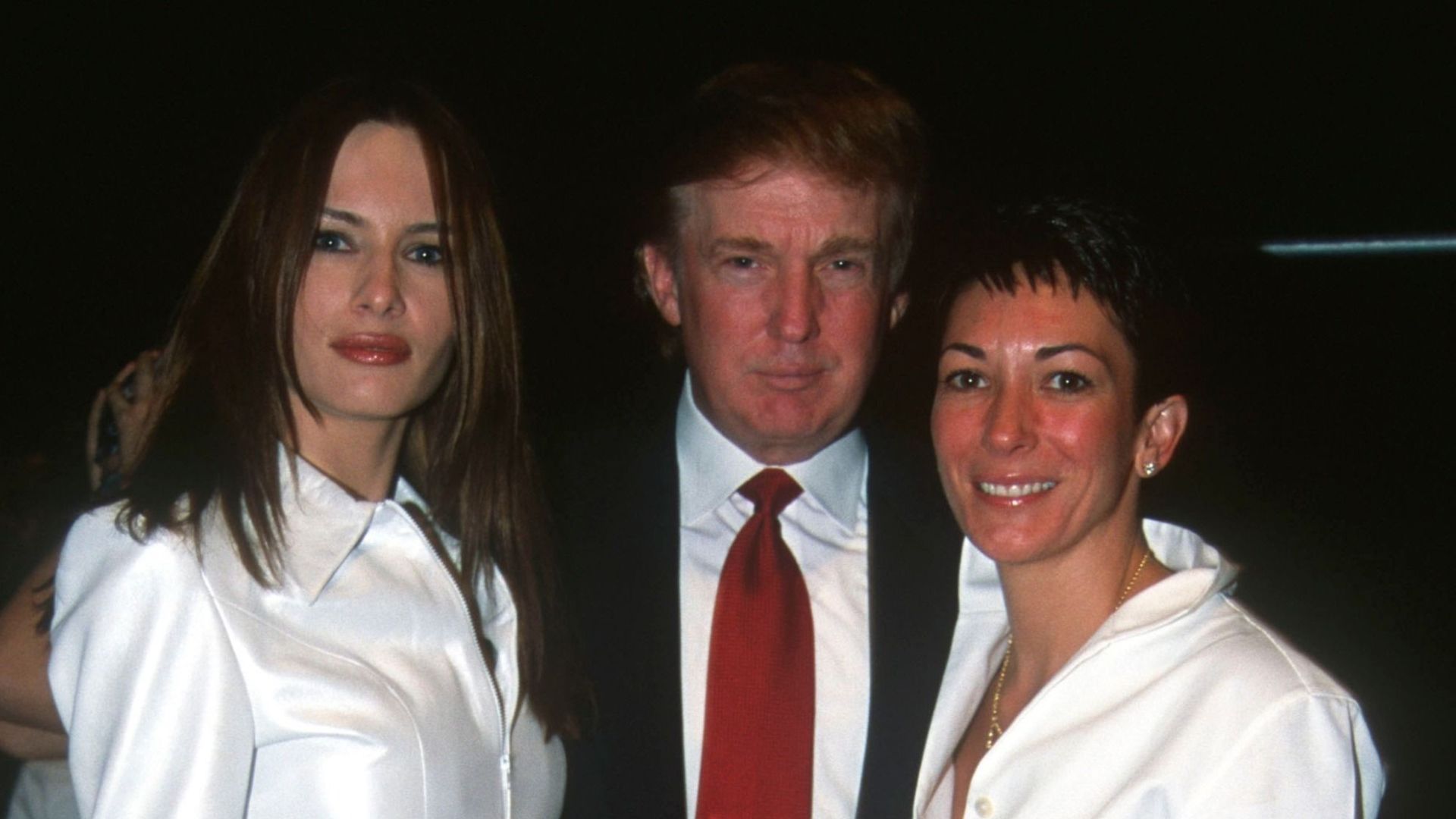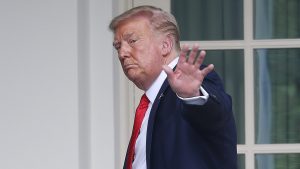Trump Continuous Defense Of His Criminal Friends: We all saw it happen, but it remains hard to believe. When asked during a White House press briefing Tuesday about the federal prosecution of Ghislaine Maxwell for her alleged role in recruiting, grooming and sexually abusing underage girls, President Donald Trump responded, “I just wish her well, frankly.”
Just to reassure us that we weren’t collectively hallucinating this bizarre response to the arrest of Jeffrey Epstein’s alleged accomplice, Trump said it again: “I wish her well.”
RELATED: Ghislaine Maxwell Created The Monster Epstein
Let’s take a moment to reflect. Imagine if any president in history — John Adams, FDR, Kennedy, Reagan, take your pick — was asked about a case brought by his own Justice Department alleging that a defendant had committed serial child molestation and then responded with “I wish her well.” Heads would have exploded. And they should be here too.
But there also should be a sense of recognition.
When else has Trump publicly expressed warm wishes or sympathy for people charged with crimes by his own Justice Department — and later taken steps to undermine their prosecutions?
Where to begin?
He tweeted incessantly in support of his longtime political confidante Roger Stone. He initially praised Stone for having “guts” for refusing to testify or cooperate with Special Counsel Robert Mueller. Later, Trump’s tweets became a maelstrom of indignation over Stone’s judge, jury and prosecutors.
Trump ultimately granted a commutation to Stone — who never did cooperate with Mueller — just days before he was set to report to federal prison. Trump also railed about the unfairness of the prosecution of Michael Flynn, his first national security adviser; at times the President openly contemplated a pardon.
Eventually, Trump’s loyal attorney general, William Barr, took the unprecedented step of undermining his own Justice Department prosecutors and seeking to dismiss Flynn’s conviction — even though Flynn had pleaded guilty to lying to the FBI. Flynn at one point cooperated with Mueller, but that eventually fell apart.
Flynn flaked (as we used to put it when I was at the Justice Department) and, for some reason, decided he no longer wanted to answer all the prosecutors’ questions. Like Flynn, Paul Manafort, Trump’s former campaign chairman, at one point agreed to cooperate with Mueller but then effectively killed the deal when he got caught lying to the Special Counsel.
Trump had repeatedly tweeted support for Manafort, at one point comparing him favorably (and bizarrely) to Al Capone. In May, Manafort was released early from federal prison over concerns relating to Covid-19. What do these three prior cases have in common? Trump has personal and political ties to each defendant.
Stone and Flynn committed crimes connected to the Trump campaign and administration, and Manafort committed crimes in the run-up to being named Trump’s campaign manager.
Trump took at least some step to help each person’s cause, ranging from favorable public statements to an official commutation.
And none of the defendants cooperated against Trump — two of them, Flynn and Manafort, had started to do so but then changed their minds. The case against Maxwell’s co-conspirator, Epstein, already has been rocked by controversy.
Florida prosecutors gave Epstein a preposterously lenient plea deal in 2008, permitting him to dodge federal charges and serve only 13 months in state custody (while allowing him to leave the jail to go to work six days a week) for prostitution charges over his involvement with underage girls.
The lead prosecutor at the time, Alex Acosta, later became Trump’s Secretary of Labor before resigning amidst public furor over the indefensible and inexplicable Epstein deal.
This is not to argue that a Trump pardon of Maxwell, or some other form of political or outside meddling, is imminent or likely; that would be too politically self-destructive to seriously contemplate, particularly before an election (though Trump has defied conventional norms before).
But the pattern here is impossible to ignore. Maxwell has been charged with helping Jeffrey Epstein commit serious and grotesque crimes relating to the sexual abuse of children. Trump was personal friends –and used to party– with Epstein. Trump once declared that “I’ve known Jeff for 15 years. Terrific guy. He’s a lot of fun to be with.
It is even said that he likes beautiful women as much as I do, and many of them are on the younger side.” Even Tuesday, Trump acknowledged that “I’ve met her (Maxwell) numerous times over the years, especially since I lived in Palm Beach. I guess they (Epstein and Maxwell) lived in Palm Beach.”
In 2017, Trump Organization attorney Alan Garten told Politico “as I have previously explained, he (Trump) had no relationship with Mr. Epstein and had no knowledge whatsoever of his conduct.”
When asked about Maxwell at the Tuesday press briefing, Trump easily could (and should) have said simply, “I can’t comment on a pending case, the case charges very serious crimes, and I’m confident justice will be done here.” But instead he chose to publicly declare his moral support for an alleged accomplice of an accused sex-trafficker.
There is no way to know exactly what motivated Trump’s outlandish public display. But he has previously expressed sympathy publicly for his personal friends who ended up as criminal defendants. They key now is to pay extra attention to make sure that this case doesn’t end up short-circuited, like those before it.




